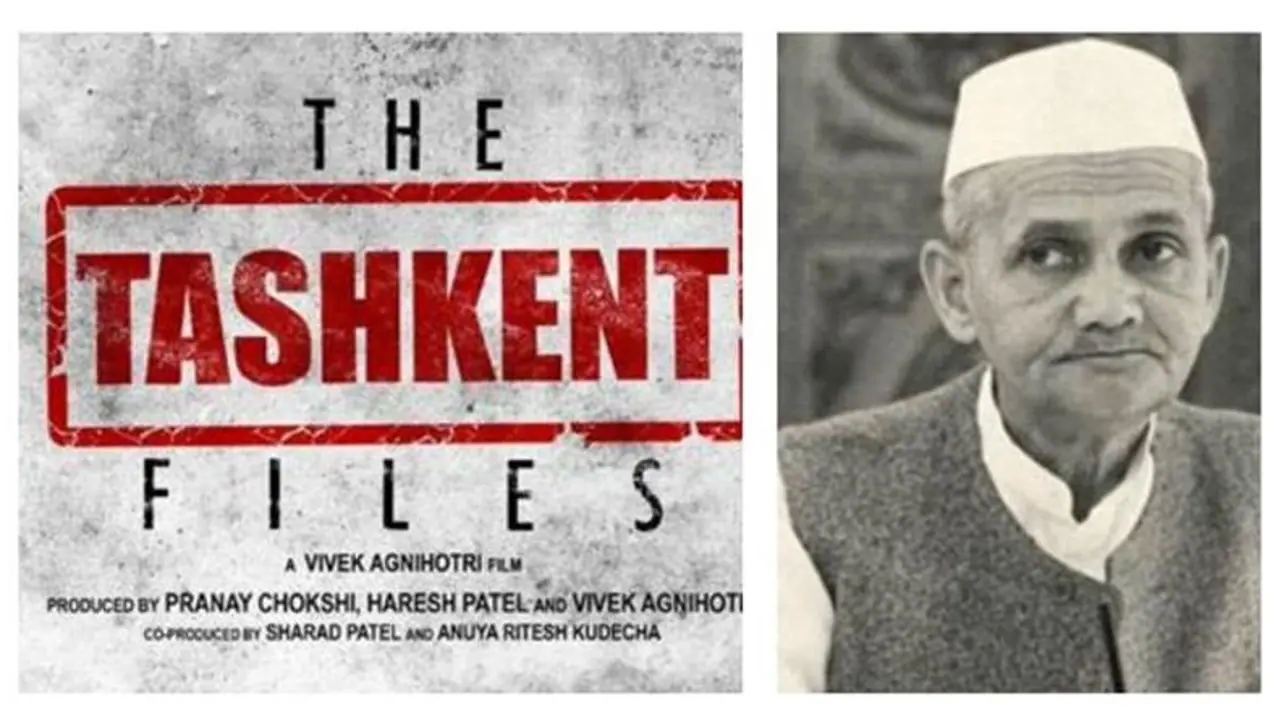Why did second PM and unsung national hero Lal Bahadur Shastri die so mysteriously in Tashkent right after India defeated Pakistan in war and signed a peace treaty? Who could have killed him? Why was there such an elaborate cover-up? Vivek Agnihotri has made a must-watch movie for every young Indian.
New Delhi: Films made on history are often insufferably heavy, unbearably dry, and turn-offingly wade into the quagmire of putting narrative over facts, propaganda over the spirit of inquiry.
You go to watch Vivek Agnihotri’s Tashkent Files on the mysterious death of India’s second Prime Minister Lal Bahadur Shashtri with those fears looming. His outspoken views against the Nehru-Gandhi ideological ‘ecosystem’ makes him more of a target for our Left-liberal intelligentsia.
But you find that the film is gripping –– especially the second half –– and solidly researched; something that the nation’s journalists should have done in all these years.
Under Shastri, India wins a war against Pakistan. The then PM goes to USSR-held Uzbekistan’s capital Tashkent and signs a peace treaty, but dies mysteriously in his hotel. No post-mortem is conducted.
Indira Gandhi becomes PM. Many questions are never answered. And when Vivek’s film raises it, efforts are made to stay the movie.
Here are five reasons you must watch the movie.
Know the hero born on October 2
The film begins with a straight question: “Which national hero was born on October 2?”
The straight answer: “Mohandas Karamchand Gandhi.”
Far from straight, actually. Shastri, the PM who in just two years of tenure won a war for India against Pakistan, cradled the White Revolution in milk production and the Green Revolution in agriculture, repatriated stranded Indians from troubled Burma and signed a treaty on the citizenship of Indian workers in Ceylon, is mentioned as a footnote. For his party Congress which he selflessly served, he is just the man who coined the slogan, “Jai Jawan, Jai Kisan.”
Tashkent Files seeks to correct that.
Question, question, question
Why did an otherwise healthy Shastri die so suddenly in Tashkent?
Why was the original hotel venue changed?
Why were his dinner and milk served by someone other than his own trusted cook that night?
Why were medical facilities in a place the PM is staying at so inadequate?
Why did his face turn blue after death?
Why were there bleeding wounds on his body?
Why were there discrepancies in the death report?
Why did the government of India not want a post-mortem?
And finally, if it was a murder, which it strongly seems to be, WHO KILLED LAL BAHADUR SHASTRI?
Know enemies of the nation
Tashkent Files deftly puts into a context where India stood geopolitically during the Cold War. It seeks to explain why international powers and shadowy agencies would want Shastri dead.
But most importantly, it delves into the widely revered spy files, The Mitrokhin Archives, created from the handwritten notes of Russian KGB agent Vasili Mitrokhin, which casts a damning shadow on India’s long-ruling dynasty.
Besides, the film also exposes the role of agenda-driven historians and social workers, opportunistic judges, selfish and spineless bureaucrats and bigoted political parasites…among the enemies within.
Also read: Vivek Agnihotri accuses Rajdeep Sardesai of propaganda against his film on Lal Bahadur Shastri
The movie is dedicated to honest journalists. One wonders whether Agnihotri has done that without a sense of irony.
Soak in the performances
Young Shweta Basu Prasad powerfully plays the protagonist of the movie, a young journalist investigating the past. She is convincing as an easygoing youngster transforming into a hardened investigative journalist.
Naseeruddin Shah, Pallavi Joshi and Pankaj Tripathi are predictably brilliant. Mithun Chakravarty over-dramatises things a bit in his politician’s role.
Know past of those seeking your vote
While the Congress under Rahul Gandhi and Priyanka Vadra seeks votes this general election underlining their family’s great contribution to the nation, the film brings out snatches of the real history of the dynasty’s role; from Shastri’s death to Emergency to alleged secret KGB payoffs.
The sheer power of facts leave you awakened, numb, angry. The movie is a must watch for every Indian youngster.
Also read: The Tashkent Files: Vivek Agnihotri dedicates movie to 'honest' journalists

